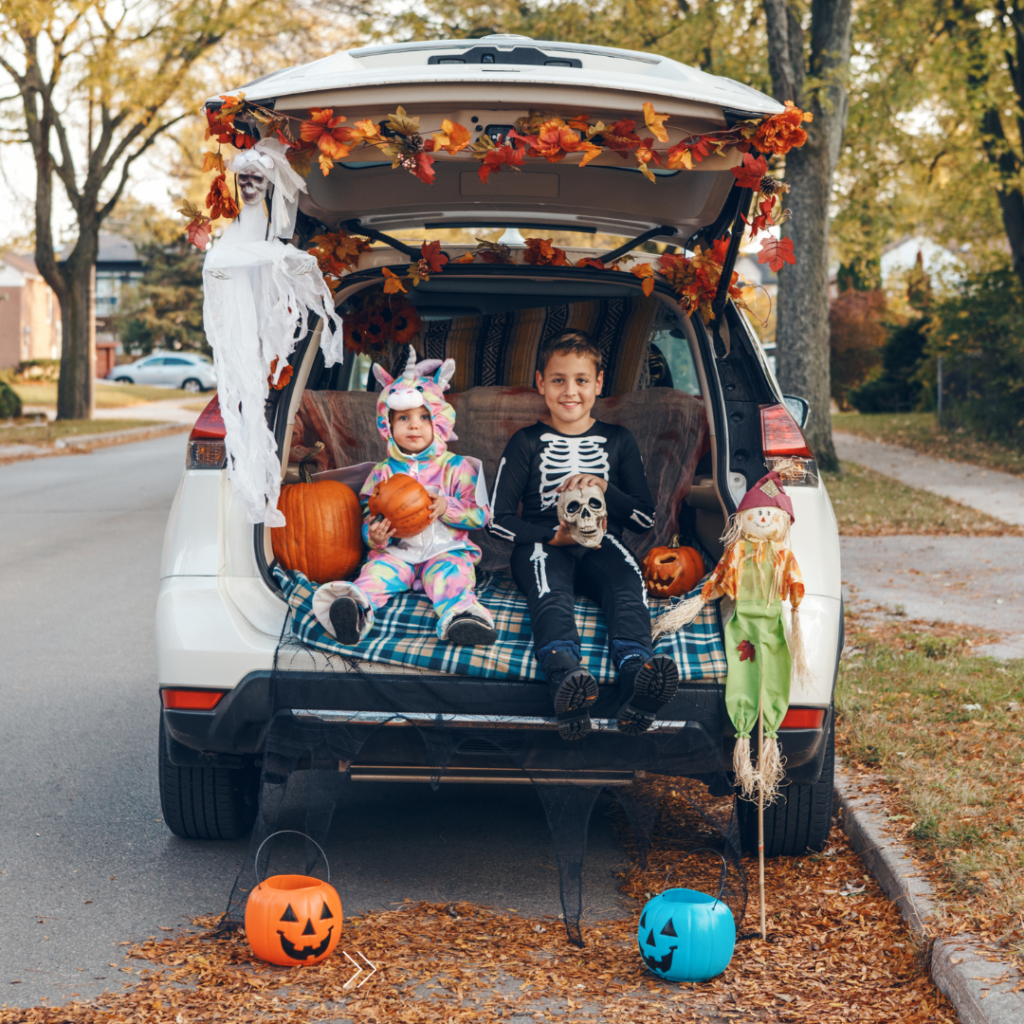Halloween, with its spooky decorations and costumes, presents a unique opportunity for parents to help their children face and overcome their fears. Instead of avoiding or dismissing their fears, we can use this festive season to empower our children, build their resilience, and help them conquer what scares them. In this blog post, we will explore how you can leverage Halloween to assist your child in facing their fears in a safe and supportive environment, fostering growth and self-confidence.
Fear is a powerful and primal emotion that has evolved with humans since the dawn of time. It served as a survival mechanism, alerting our ancestors to potential threats in their environment. However, in the modern world, fear often takes on different forms and can be triggered by various stimuli, both real and perceived. Understanding the psychology of fear is crucial for navigating the complexities of our emotions and, more importantly, for learning how to deal with it effectively.
The Anatomy of Fear
Fear is a complex emotion with deep roots in our brain’s limbic system, particularly the amygdala. This almond-shaped structure plays a central role in processing emotions, including fear responses. When we encounter a perceived threat, whether it’s physical or psychological, the amygdala sends signals to other parts of the brain and body, triggering the famous “fight or flight” response.
However, not all fears are rational or immediate. Many fears are born from our thoughts, memories, or learned behaviors. Understanding the distinction between real and imagined threats is essential in unraveling the psychology of fear.
Common Types of Fear
- Biological Fear: This includes fears related to survival, such as fear of heights, snakes, or darkness.
- Social Fear: Fear of rejection, judgment, or public speaking fall into this category, highlighting the social aspect of human fears.
- Existential Fear: Fear of death, meaninglessness, or the unknown can be profound and existential in nature.
- Learned Fear: Some fears are acquired through experiences, often in childhood, and may include fear of failure, criticism, or specific situations.
Create a Safe and Supportive Environment
First and foremost, ensure that your child feels safe and supported throughout the Halloween experience. Let them know that it’s okay to feel scared and that you’re there to guide and protect them. Establish an open line of communication, allowing them to express their fears and concerns without judgment. By providing a nurturing environment, you lay the foundation for your child’s journey towards conquering their fears.
Gradual Exposure to Fears
Halloween provides a controlled environment where children can confront their fears in a manageable way. Start by introducing mildly spooky elements, such as friendly ghost decorations or cute Halloween-themed books. As your child becomes more comfortable, gradually expose them to slightly scarier decorations or costumes. This gradual exposure helps them build resilience and confidence while feeling supported by your presence.
Empower through Costume Choices
Allow your child to choose their Halloween costume based on their fears or interests. Encourage them to dress up as a character or object that represents something they fear but want to conquer. By embodying their fear, they can gain a sense of control and empowerment. For example, if your child is afraid of spiders, dressing up as a spider can help them face and diminish their fear.
Storytelling and Role-playing
Engage in storytelling and role-playing activities centered around your child’s fears. Use age-appropriate stories or create your own narratives where characters face and conquer their fears. Encourage your child to participate by imagining themselves as brave heroes or heroines in these stories. Role-playing allows them to rehearse facing their fears in a safe and imaginative context.
Visit Child-Friendly Halloween Events
Take your child to child-friendly Halloween events or parties where they can experience a supportive and controlled environment. Look for events that offer age-appropriate activities, such as pumpkin carving, face painting, or costume parades. These events provide opportunities for your child to see others embracing Halloween and conquering their fears, fostering a sense of camaraderie and inspiration.
Encourage Problem-solving and Coping Strategies
Teach your child problem-solving and coping strategies that can help them manage their fears. For instance, if your child is afraid of the dark, provide them with a small flashlight or a nightlight to use at bedtime. Teach them deep breathing techniques or visualization exercises to calm their minds when they feel scared. By equipping them with practical tools, you empower them to confront and navigate their fears more effectively.
Celebrate Courage and Progress
Throughout the Halloween season, celebrate your child’s courage and progress in facing their fears. Recognize and praise their efforts, no matter how small. Acknowledge their bravery and resilience, emphasizing that it’s okay to feel scared but that facing their fears is a sign of strength. Celebrating their achievements boosts their confidence and motivates them to continue conquering their fears beyond Halloween.
Halloween can be more than just a night of costumes and candy. It offers an incredible opportunity to help your child face and conquer their fears in a supportive and controlled environment. By creating a safe space, gradually exposing them to their fears, empowering them through costumes, storytelling, and role-playing, visiting child-friendly events, teaching coping strategies, and celebrating their progress, you can guide your child towards greater resilience and self-confidence. Embrace the spirit of Halloween as a tool for growth and transformation, helping your child conquer their fears and unlock their full potential.
Start Receiving Support From Therapists in Savannah, GA
Children have wonderful imaginations and finding ways to support their fantasies while also overcoming their fears can be challenging. Is your child struggling with a phobia or fear? You can connect with a professional counselor at Water’s Edge Counseling to help support you or your loved one with maintaining a balanced mindset and overall mental health. Our team would be honored to offer support from our Savannah, GA-based practice. You can start your therapy journey by giving us a call at 912.319.5552 or emailing us at info@watersedgecounseling.com.
Other Services Offered With Waters Edge Counseling
We understand that you may experience issues with more than one mental health concern at a time. This is why we are happy to offer support with a variety of mental health services. Our team is happy to offer support with multiple mental health services including online counseling, clinical supervision, coping after a cancer diagnosis, and SCAD student counseling. We are also happy to offer therapy for anxiety, depression, eating disorders, substance abuse, teen substance abuse, and counseling for men. In addition, we also offer counseling for teens, child counseling, family counseling, Christian counseling, grief counseling, and marriage counseling.




